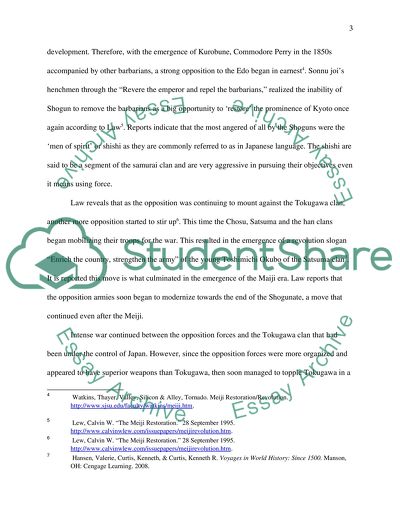Cite this document
(“Should the Meji Restoration be considered a revolution What were its Essay”, n.d.)
Retrieved from https://studentshare.org/history/1403995-should-the-meji-restoration-be-considered-a
Retrieved from https://studentshare.org/history/1403995-should-the-meji-restoration-be-considered-a
(Should the Meji Restoration Be Considered a Revolution What Were Its Essay)
https://studentshare.org/history/1403995-should-the-meji-restoration-be-considered-a.
https://studentshare.org/history/1403995-should-the-meji-restoration-be-considered-a.
“Should the Meji Restoration Be Considered a Revolution What Were Its Essay”, n.d. https://studentshare.org/history/1403995-should-the-meji-restoration-be-considered-a.


